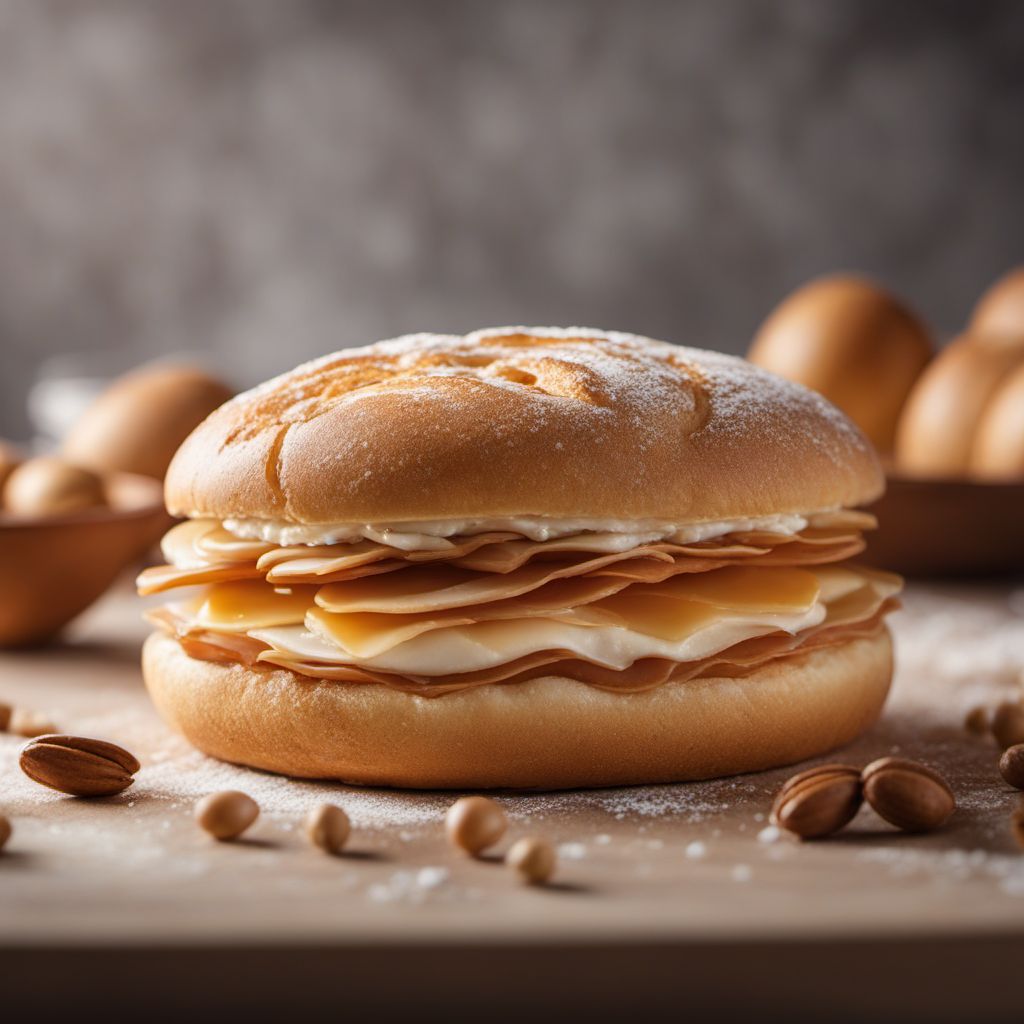
Ingredient
Fine bakery wares
The Artistry of Delicate Baked Goods
Fine bakery wares are characterized by their exquisite appearance, delicate textures, and rich flavors. These baked goods are often made with high-quality ingredients and require meticulous attention to detail during the preparation process. From buttery croissants with their crisp, golden layers to intricately decorated cakes that are a feast for the eyes, fine bakery wares are a true indulgence for the senses.
Origins and history
The tradition of fine bakery wares can be traced back centuries to various cultures around the world. In Europe, countries like France and Austria have a long-standing tradition of producing exquisite pastries and cakes. The art of patisserie in France, for example, dates back to the 17th century and has since become renowned worldwide. In other parts of the world, such as Asia, delicate pastries and sweets have been an integral part of culinary traditions for centuries.
Nutritional information
Fine bakery wares are typically indulgent treats that are enjoyed in moderation. They are often high in calories, fats, and sugars, making them a delightful but occasional indulgence.
Allergens
Fine bakery wares may contain common allergens such as wheat, eggs, dairy, and nuts. It is important to check the ingredient list or consult with the baker to ensure they are suitable for individuals with specific dietary restrictions or allergies.
How to select
When selecting fine bakery wares, look for those that are freshly baked and made with high-quality ingredients. Opt for bakeries or patisseries that have a reputation for excellence and attention to detail. Consider the appearance, aroma, and overall presentation of the baked goods to ensure their quality.
Storage recommendations
Fine bakery wares are best enjoyed fresh, but if you need to store them, it is important to do so properly to maintain their freshness. Most delicate pastries and cakes should be stored in airtight containers at room temperature for a day or two. However, some items may require refrigeration to prevent spoilage. It is best to consume them within a few days for optimal taste and texture.
How to produce
Producing fine bakery wares requires advanced baking skills and knowledge. Amateur bakers can start by mastering basic techniques such as making puff pastry or perfecting cake decorating. Taking baking classes or following reputable recipes and tutorials can help develop the necessary skills to create fine bakery wares at home.
Preparation tips
When preparing fine bakery wares, it is crucial to follow the recipe instructions precisely and pay attention to details such as temperature and timing. Use high-quality ingredients and ensure proper measurements for the best results. Additionally, practicing techniques such as folding pastry dough or piping frosting can help achieve the desired texture and appearance.
Culinary uses
Fine bakery wares are commonly enjoyed as standalone treats or as part of dessert menus. They can be served at special occasions, afternoon tea, or enjoyed as a sweet indulgence any time of the day. These delicate creations can also be incorporated into various desserts, such as using croissants for bread pudding or using cake layers for trifles.
Availability
Fine bakery wares can be found in bakeries, patisseries, and specialty dessert shops worldwide. They are particularly prevalent in countries with a strong baking tradition, such as France, Austria, Italy, and the United States.
More ingredients from this category
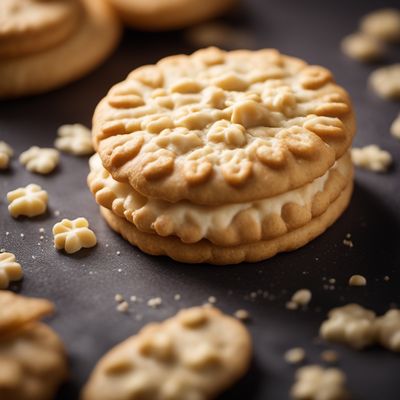
Biscuits
Fluffy Pillows of Delight
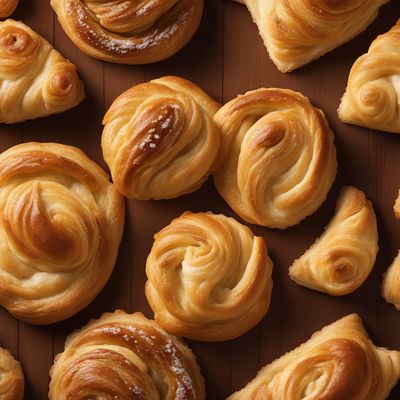
Pastry based on laminated dough
Mastering the Art of Flaky Delights
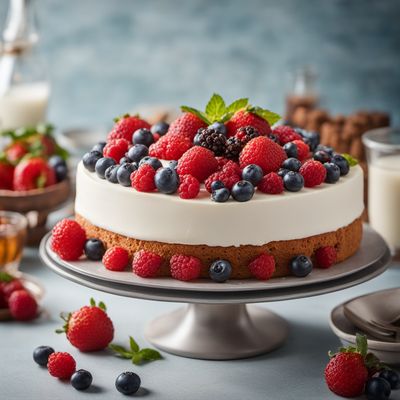
Cakes
The Art of Baking Delights
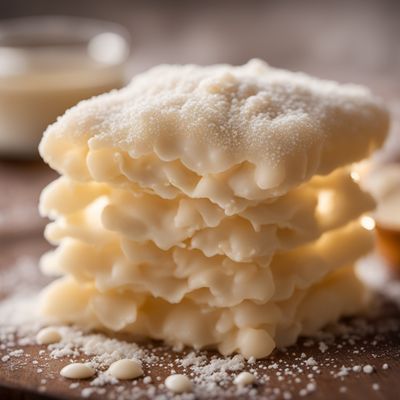
Yeast leavened pastry
The Fluffy Indulgence: Yeast Leavened Pastry

Various pastry
Delicious Baked Treats
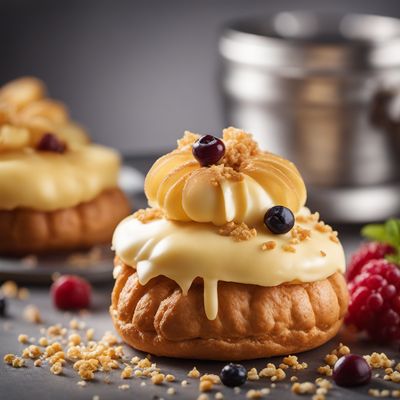
Choux pastry
Pâte à Choux: The Versatile French Delight
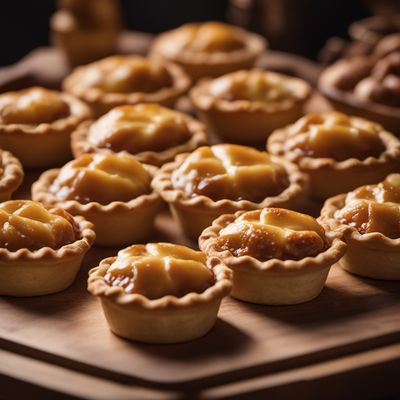
Shortcrust (pies -tarts)
The Perfect Foundation: Shortcrust for Pies and Tarts
Recipes using Fine bakery wares » Browse all

Dutch-Style Cheesesteak
Gouda Delight: Dutch-Style Cheesesteak with a Twist
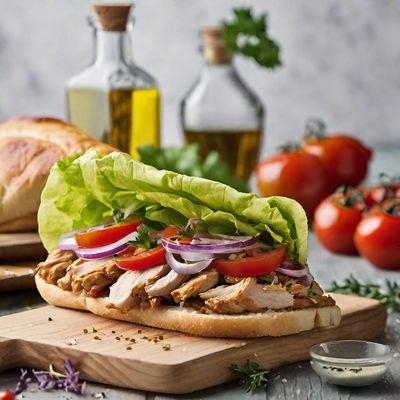
Gyros à la française
Savory French-style Gyros

French Onion Beef Sandwich
Savory French Onion Beef Sandwich: A Melting Delight

Spanish-style Cheesesteak
Sizzling Spanish Cheesesteak Delight

Bánh Mì Chả Cá with a Twist
Vietnamese Delight: Crispy Fish Bánh Mì

Leonese Hot Dog
Sausage al Estilo Leonés: A Spanish Twist on the Classic Hot Dog
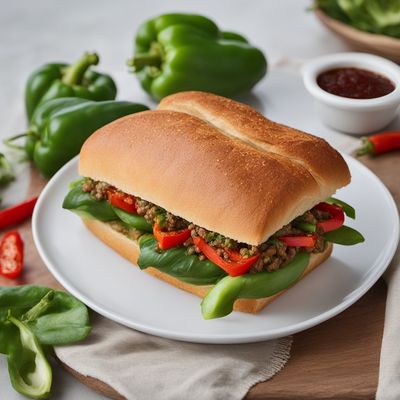
Tianjin-style Vegetable Sandwich
Tianjin's Veggie Delight: A Twist on the Classic Sandwich
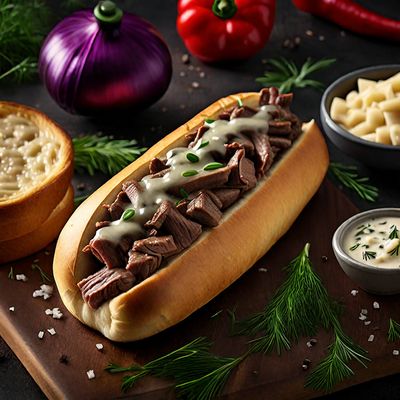
Russian-Style Cheesesteak
Moscow Cheesesteak: A Russian Twist on a Classic American Dish
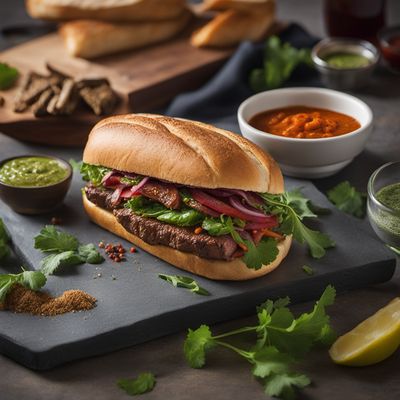
Anglo-Indian Spiced Steak Sandwich
Spiced Steak Delight: A Fusion of Anglo-Indian Flavors in a Sandwich

Bocadillo de Carne with a Twist
Savory Spanish Beef Sandwich

Turks and Caicos Island Style Beef Dip Sandwich
Savory Island Beef Dip: A Taste of Turks and Caicos

Vietnamese-style Bulgogi
Banh Mi Bulgogi: A Vietnamese Twist on a Korean Classic